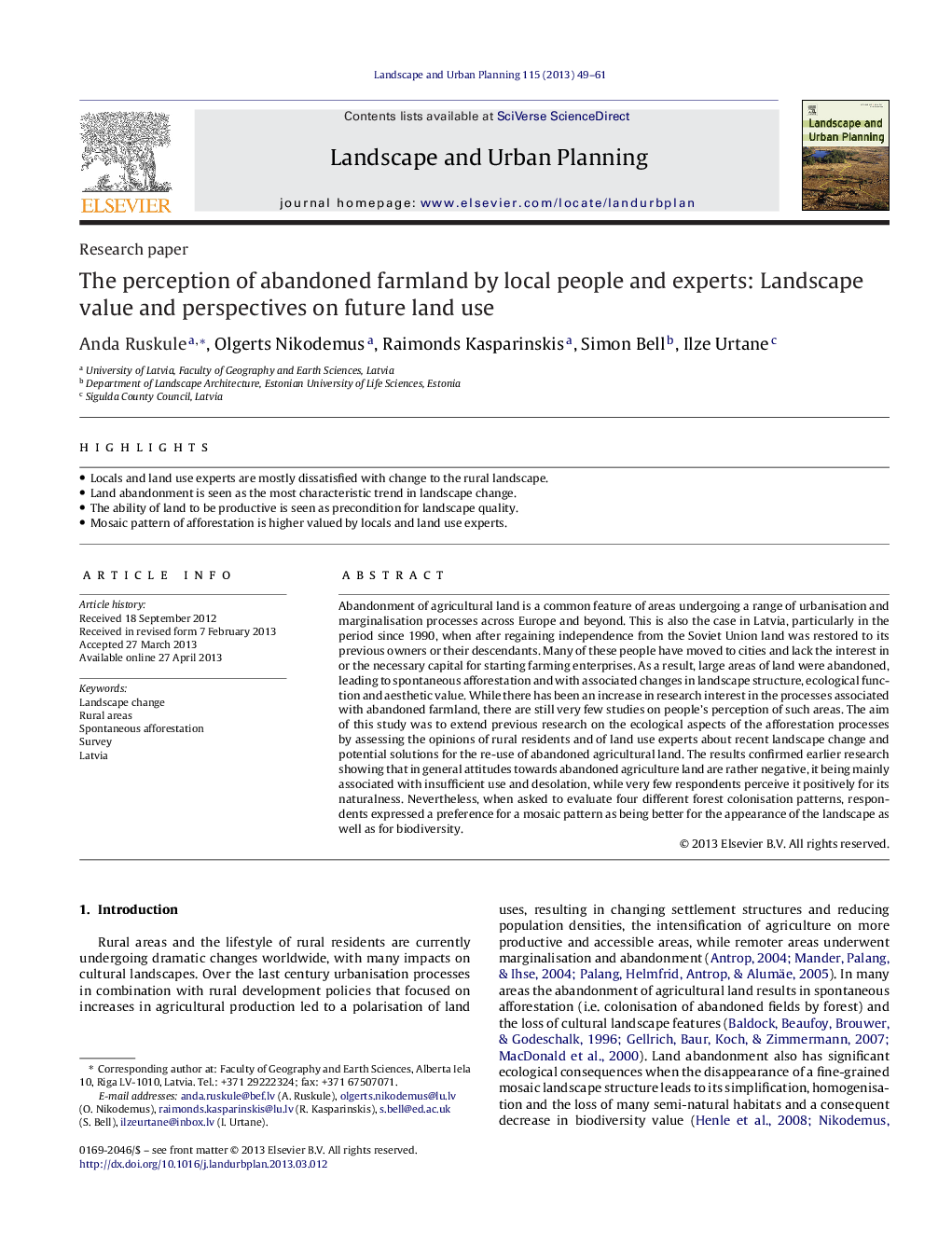| Article ID | Journal | Published Year | Pages | File Type |
|---|---|---|---|---|
| 1049372 | Landscape and Urban Planning | 2013 | 13 Pages |
•Locals and land use experts are mostly dissatisfied with change to the rural landscape.•Land abandonment is seen as the most characteristic trend in landscape change.•The ability of land to be productive is seen as precondition for landscape quality.•Mosaic pattern of afforestation is higher valued by locals and land use experts.
Abandonment of agricultural land is a common feature of areas undergoing a range of urbanisation and marginalisation processes across Europe and beyond. This is also the case in Latvia, particularly in the period since 1990, when after regaining independence from the Soviet Union land was restored to its previous owners or their descendants. Many of these people have moved to cities and lack the interest in or the necessary capital for starting farming enterprises. As a result, large areas of land were abandoned, leading to spontaneous afforestation and with associated changes in landscape structure, ecological function and aesthetic value. While there has been an increase in research interest in the processes associated with abandoned farmland, there are still very few studies on people's perception of such areas. The aim of this study was to extend previous research on the ecological aspects of the afforestation processes by assessing the opinions of rural residents and of land use experts about recent landscape change and potential solutions for the re-use of abandoned agricultural land. The results confirmed earlier research showing that in general attitudes towards abandoned agriculture land are rather negative, it being mainly associated with insufficient use and desolation, while very few respondents perceive it positively for its naturalness. Nevertheless, when asked to evaluate four different forest colonisation patterns, respondents expressed a preference for a mosaic pattern as being better for the appearance of the landscape as well as for biodiversity.
